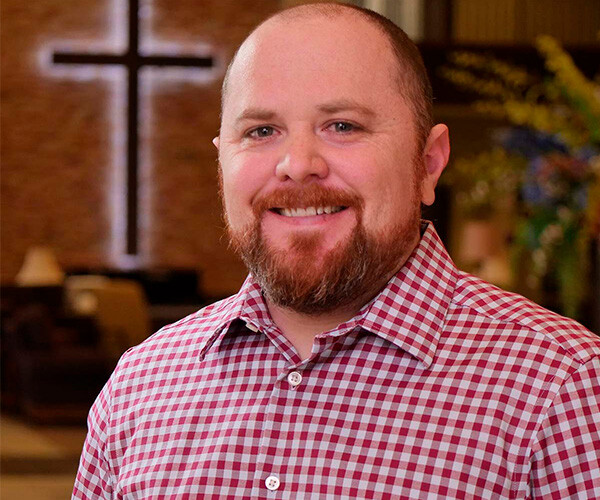
Below I am putting up the transcript of our lesson for Midpoint tonight. Parents, we would love for you to read this and talk to your students about what they are learning. I hope that for anyone who reads it, this will be an encouragement and a challenge.
The Apostle John
1 John is a letter, like most of the books of the New Testament, all of them in fact except the 4 gospels, Acts, and sort of Revelation. Even Revelation contains letters, it is just more than letters. John himself writes 10 letters found in the New Testament, he wrote 1, 2, 3 John plus 7 letters found in Revelation.
For the most part, John writes last. John was the last surviving Apostle by a lot, he outlived the rest of the apostles by probably close to 30 years. There are a couple of other apostles who may have lived longer than most, Thomas is believed by some to have traveled as far as India/Pakistan, but even pushing their dates of death back, John still lived much later and much longer than his friends. A few historians think that John might have written his 1-3 John letters earlier, around the same time as Paul was writing, but most tend to agree that the last 5 books of the New Testament were John’s writings, his gospel, his letters, and Revelation with Revelation being the last. There is some disagreement on the order of the other 4.
I want to be clear, John is the apostle John, the brother of James. It is possible that he was first cousins with Jesus, this could help explain why the two of there were so close. We don’t know this for sure, but it is possible, maybe even likely. John was one of the 3 disciples who was with Jesus for everything, they were the only 3 included in the transfiguration. He was also described by the New Testament as the disciple whom Jesus loved. He was in many respects, Jesus’ best friend.
John was probably the youngest of the original 12 apostles, he was probably 10-15 years younger than Jesus. This would make him approximately 15 when Jesus called him to be a disciple. It would put his birth somewhere around 10-15 A.D. and his death somewhere around 100 AD, so he was old when he died. Unusually old for the time and as I said, most of the other original disciples had been dead for some time by this point. Most of apostles were martyred in the 40-70s, some of his friends had been dead for 60 years when he himself finally died.
John is helpful to his readers in that he usually states his purpose for writing very clearly and I think that the main purpose of 1 John is stated in 1 John 5:13, “I have written this to you who believe in the name of the Son of God, so that you may know you have eternal life." (NLT)
John’s purpose in this letter is so that you can have confidence in your faith. That is why I titled this series, “Full Assurance.” We want you to be fully confident in your salvation. So let’s dive into the text.
We proclaim to you the Messiah who we saw & touched. (v.1-4)
1 We proclaim to you the one who existed from the beginning, whom we have heard and seen. We saw him with our own eyes and touched him with our own hands. He is the Word of life. 2 This one who is life itself was revealed to us, and we have seen him. And now we testify and proclaim to you that he is the one who is eternal life. He was with the Father, and then he was revealed to us. 3 We proclaim to you what we ourselves have actually seen and heard so that you may have fellowship with us. And our fellowship is with the Father and with his Son, Jesus Christ. 4 We are writing these things so that you may fully share our joy. (NLT)
These verse give us one of the distinguishing characteristics of Christianity and one of the reasons that the Roman Empire was so threatened by it. Jesus was real. We claim a God who walked on the earth with us and who people touched and saw. He lived life with his disciples. He ate with them and slept on the road with him. John writes to his audience and to us not of some god who sits on a shelf or lives in legend, but of a God that he saw.
He witnessed Jesus perform miracles. He witnessed Jesus bring Lazarus back from the dead. He witnessed Jesus die on the cross. Another thing of note about John is that he is the only of the apostles who witnessed the crucifixion, so he was a unique witness to Jesus’ death. He witnessed Jesus for 40 days after the resurrection.
He wants his audience to know that this isn’t just some other god, this is the God and he was an actual witness of God’s work. The word manifest is used in most translations in this passage. He was manifest, made real. God’s plan for salvation was achieved.
God is perfect. (v.5)
5 This is the message we heard from Jesus and now declare to you: God is light, and there is no darkness in him at all. (NLT)
It might seem like this is a no-brainer that isn’t worth spending time on, but it is so important to understand this point. God is perfect because the standard of perfection is based on the person of God. God’s identity determines the standard for righteousness or perfection. There is no other standard.
This is important because it determines how you understand reality. If God is not perfect, then sin doesn’t exist. Sin is the failure to measure up to God, if God isn’t perfect there is no sin, so there is no need for Jesus. John starts this book by reminding his readers that he is testifying about Jesus who he saw with his own eyes. The very next thing he writes is a reminder of the perfection of God.
Perfection is a concept that is very difficult for our minds to comprehend. Nothing in the world around us is truly perfect. There is a flaw in all of it. So, perfection is completely outside of our experience with one exception. When you have experienced God, you have experienced the presence of perfection.
As believers, we can and do experience God. We have conversations with him. He leads us. He gives us support and direction. We have a two-way relationship with God. It is an “experience” of perfection. Our sinful nature makes this difficult, but it we do get to experience God in a way the world does not. Because God is perfect…
I am called to live differently. (v.6-7)
6 So we are lying if we say we have fellowship with God but go on living in spiritual darkness; we are not practicing the truth. 7 But if we are living in the light, as God is in the light, then we have fellowship with each other, and the blood of Jesus, his Son, cleanses us from all sin. (NLT)
God is the only experience of perfection possible for us. We experience perfection in our relationship with God. God has laid on us the charge to facilitate an experience with him for those around us. That is a fancy way of saying God has called us to live differently, but differently with a purpose. You are called by God to be how the world around you experiences God.
I know that’s a little scary, but it’s the call. The call is to be the experience others have of God. You can experience God any time, you live, or can live in fellowship with him. The unbelieving world cannot. They cannot fellowship with God, but they can fellowship with you. You, living differently, is how the world can experience God.
The progression that John has taken us through is really important. God sent Jesus into the world and John has testified to this truth, he has testified of a living God who walked the earth and died for your sins. He reminds us that God is perfect thus anything short of that is sin. And now he is teaching us that we are the main way that the sinful world around us can experience God. But he also wants to remind us…
I am a sinner. (v.8)
8 If we claim we have no sin, we are only fooling ourselves and not living in the truth. (NLT)
I left this verse as a standalone point in our lesson because I think that it’s something we need to remind ourselves. I am a sinner which means that what I deserve is death. Romans 6:23 teaches us that we have worked in our lives through our sin to deserve death.
AA or Alcoholics Anonymous has a share time as a part of their program. Each person, when they share introduces themselves in the same format, “Hi, I am John Smith, I’m an alcoholic.” Then they share about their week or struggles or victories of whatever. It is possible that John Smith has not had a single drink in 30 years, yet he will still introduce himself as an alcoholic.
We like to pretend like we are not defined by our choices in our culture. I heard a conversation one day where a guy called someone a liar. Another person said something like, “don’t call people a liar, it’s not nice.” The guy responded, “I wasn’t trying to be nice.” There is a whole conversation around their attitude towards each other in that moment, but the truth is, we are defined by our actions. A thief steals, a liar lies, a murderer has killed, and a cheater cheats. It doesn’t mean that that is all they do, but that is a choice they have made.
We have all chosen to be sinners. Let me say that again, you have chosen to be a sinner. It is a choice every single person on earth apart from Jesus has made and that choice means that we deserve death. And yet…
I am forgiven if I have confessed my sin. (v.9-10)
9 But if we confess our sins to him, he is faithful and just to forgive us our sins and to cleanse us from all wickedness. 10 If we claim we have not sinned, we are calling God a liar and showing that his word has no place in our hearts. (NLT)
I want to spend a minute what I believe it means to confess our sins. I don’t not believe that it means to confess specific sins in this context, though that could be a part of your salvation experience and it certainly something that we need to practice. I don’t think that is what John is talking about. Based on what we have read so far, I believe that John means that we confess ourselves to be sinners understanding what that really means.
Remember before I mention that if God is not perfect sin does not exist. Therefore, when we confess ourselves to be sinners, we can only do so with the understanding that God is perfect. It also means that we understand that we are defined by our sin. It has changed the nature of who we are. Like an alcoholic, I must stand before God and say, “My name is John-David Culbertson, I am a sinner.”
When we do that, then he is perfectly faithful and perfectly just. He will forgive our every sin for all time and cleanse us from every evil thing we have ever done. It means that I can now stand before the perfect God without fear of condemnation because Jesus has taken that condemnation for me.
Verse 10 wraps up this section by reminding us of who we are and our need for his forgiveness. We cannot claim to be sinless without rebelling against God. It is a counter claim about the nature of the world. God claims that he is the standard for righteousness and perfection, if we claim to be sinless then we are claiming that for ourselves or we are claiming that there is no standard of righteousness, thus no perfect God.
Only when the world of God has taken hold in our heart do we understand that we are sinners and he is perfect and when we understand that and accept that Jesus died to reconcile us to the Father, then we are saved.
My name is John-David Culbertson, I am a sinner. I needed the saving work of Jesus Christ to reconcile me with the Perfect God, Father God. I had no hope apart from his saving work. The purpose of this lesson was to remind us that Jesus was real and his work on earth was witnessed by the apostles who gave us the New Testament and that we are each sinners in need of a savior.
I hope that you will be encouraged by this truth if you are a believer and challenged to consider who you are and who God is if you are not. I also want to challenge everyone reading this and our students tonight to take back up the call to reach the world with this truth. We are kicking back off our My1 Challenge. Find someone who is not a believer and commit to praying for them and extending and invitation to them, either an invitation to the Gospel or to church.



